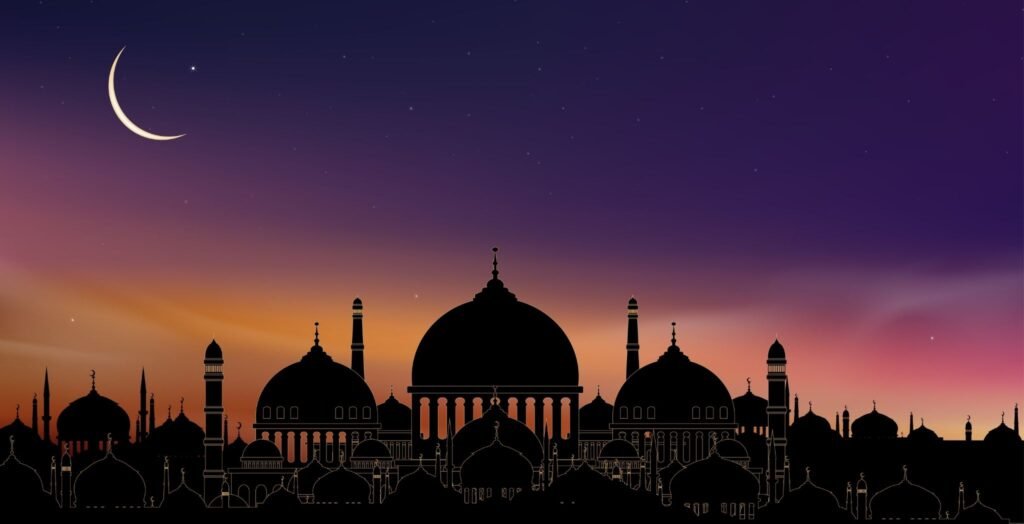Introduction
Muharram is one of the most significant months in the Islamic calendar, marking the beginning of the new year. For Muslims around the world, Muharram holds deep historical and spiritual significance, especially on the day of Ashura. In 2024, Muharram will once again be observed with reverence and respect, highlighting its rich history and cultural practices.
Origins
The origins of Muharram can be traced back to the early days of Islam. The word “Muharram” itself means “forbidden” in Arabic, indicating the sacred nature of the month. It is one of the four sacred months in the Islamic calendar during which warfare is prohibited. This sanctity is rooted in pre-Islamic times and was acknowledged by Islam.
History
Muharram has a profound historical significance for Muslims, primarily due to the tragic events that took place during this month. The most notable event is the Battle of Karbala, which occurred on the 10th day of Muharram, known as Ashura.
This battle led to the martyrdom of Imam Hussain, the grandson of Prophet Muhammad, and his followers. The events of Karbala are a pivotal moment in Islamic history, symbolizing the struggle against injustice and tyranny.
Ashura

Ashura is the 10th day of Muharram and is the most important day of the month. For Shia Muslims, it is a day of mourning and remembrance for the martyrdom of Imam Hussain and his companions at the Battle of Karbala.
Sunni Muslims also observe Ashura but with different practices. For them, it is a day of fasting and reflection, commemorating various events in Islamic history, including the deliverance of Prophet Moses and the Israelites from Pharaoh’s tyranny.
Importance
The significance of Muharram lies in its historical, spiritual, and cultural aspects. For Shia Muslims, Muharram and especially Ashura symbolize the fight against oppression and the sacrifice made by Imam Hussain and his followers. It serves as a reminder of their unwavering faith and courage.
For Sunni Muslims, Muharram is a time to remember important events in Islamic history and to reflect on the teachings of Islam.
Rituals

The rituals of Muharram vary between Sunni and Shia Muslims.
- Shia Muslims: For Shia Muslims, the first ten days of Muharram are days of intense mourning. They participate in processions, recite elegies, and perform acts of self-flagellation to express their grief and solidarity with Imam Hussain’s suffering. The night of Ashura is marked by recounting the story of Karbala, often through dramatic reenactments called “Majlis.
- Sunni Muslims: Sunni Muslims observe Ashura primarily through fasting. The Prophet Muhammad is reported to have fasted on this day and encouraged others to do so as well to commemorate the saving of Moses and his people. Some Sunnis also distribute food to the poor and engage in charitable activities.
Timing
The Islamic calendar is lunar, so the exact timing of Muharram shifts each year. Muharram 2024 will begin on the evening of July 6th, with Ashura falling on July 15th. The month of Muharram is observed with various religious and cultural activities that differ across regions and communities.
Battle of Karbala

The Battle of Karbala is the most significant event associated with Muharram. It took place on October 10, 680 AD (10th Muharram, 61 AH) in the desert of Karbala, in present-day Iraq. The battle was fought between the forces of Yazid I, the Umayyad caliph, and Imam Hussain, the grandson of Prophet Muhammad, along with his small group of supporters.
Imam Hussain’s refusal to pledge allegiance to Yazid, whom he viewed as an illegitimate and tyrannical ruler, led to his journey to Karbala. Despite being vastly outnumbered and facing severe hardships, Imam Hussain and his followers stood firm in their faith.
The battle ended with the massacre of Imam Hussain and his companions, and the women and children in his camp were taken captive. The martyrdom of Imam Hussain is a powerful symbol of resistance against injustice and is commemorated with deep sorrow and reverence by Muslims, particularly Shia Muslims.
Other Islamic Events in Muharram
While the Battle of Karbala and Ashura are the most prominent events of Muharram, there are other significant occurrences that are remembered during this month. Some traditions hold that the day of Ashura marks the day when:
- Prophet Noah’s Ark came to rest on Mount Ararat after the flood.
- Prophet Moses was saved from Pharaoh’s tyranny when the Red Sea was parted.
- Prophet Jonah was released from the belly of the whale.
- Prophet Joseph was reunited with his father Jacob.
These events add to the sacredness and importance of Ashura and Muharram, providing a rich tapestry of historical and spiritual narratives that are celebrated and reflected upon by Muslims worldwide.
Conclusion
Muharram 2024 will be a time of deep reflection, mourning, and reverence for Muslims around the world. The month, especially the day of Ashura, holds immense historical and cultural significance, highlighting the themes of sacrifice, resistance against oppression, and the steadfastness of faith.
The rituals and observances of Muharram serve as a reminder of the rich Islamic heritage and the enduring lessons from the past that continue to inspire and guide Muslims in their spiritual journey.
For more religion-related information susbscribe us.
FAQ
1. What is Muharram?
Muharram is the first month of the Islamic lunar calendar. It is one of the four sacred months in Islam during which warfare is prohibited. It holds significant religious importance, especially for its historical events, most notably the martyrdom of Imam Hussain at the Battle of Karbala.
2. Why is Muharram significant in Islam?
Muharram is significant due to the events that took place in the month, particularly the Battle of Karbala on the 10th of Muharram, known as Ashura. Imam Hussain, the grandson of Prophet Muhammad, and his followers were martyred in this battle, symbolizing the struggle against tyranny and oppression.
3. What is Ashura?
Ashura is the 10th day of Muharram. For Shia Muslims, it is a day of mourning for the martyrdom of Imam Hussain and his companions. Sunni Muslims observe it by fasting and reflecting on various historical events, such as the deliverance of Prophet Moses from Pharaoh.
4. How is Muharram observed by Shia Muslims?
Shia Muslims observe Muharram through mourning rituals. These include processions, reciting elegies, and acts of self-flagellation to commemorate the suffering of Imam Hussain. They also participate in gatherings known as “Majlis,” where the story of Karbala is recounted.
5. How do Sunni Muslims observe Muharram?
Sunni Muslims observe Muharram, particularly Ashura, by fasting. The Prophet Muhammad fasted on this day and recommended it to his followers. Sunni Muslims also engage in charitable activities and reflect on significant historical events.


